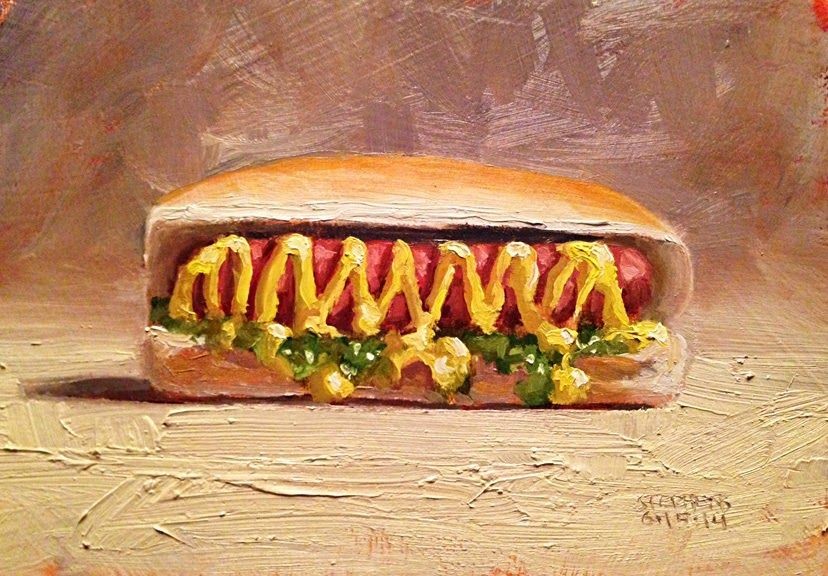Thank you, Daniel Kelly, for such a meaty question!
Why is this a question? It seems to be a question different in kind from the seemingly similar question, ‘Is a convertible a car?’ Here, seemingly, in asking if a thing described by one word belongs to a set of things described by another word, we have exposed a conflict within our deepest intuitions about the universe.
Let’s say that the question arises from the conflict between two uncontroversial intuitions we all share:
(1) A sandwich is a filling encased in bread.
(2) A hot dog is not a sandwich.
Given that a hot dog is a sausage encased in bread, then it follows from (1) that (2) is false. But then, if (2) is true, it begs the question: if not defined by (1), then what is a sandwich?
One might surmise that hot dogs are merely a subset of sandwiches, like, say, convertibles are a subset of cars. Yet, if I were to ask if you would like a sandwich and then give you a hot dog, you would be justified in your surprise at being given a hot dog and not a sandwich. There are, of course, genuine subsets of sandwiches that would not elicit surprise, e.g. paninis or subs. Since (2) is demonstrably true, the conflict must therefore arise from our definition in (1).
One possible solution to the problem would be to strengthen our definition of a sandwich in order to capture how a sandwich differs from a hot dog. For example, aside from the form of a sandwich, one might also consider its utility or origin. The sandwich was developed as a convenience food which enabled people to have a quick meal. The hot dog, however, is not a part of the same tradition. The hot dog is a street food originating in the USA in the late nineteenth century, its development fuelled by the desire to convey a hot sausage into a customer’s face without them scolding their hands. The key difference here is that a hot dog is designed to be eaten whilst walking, whereas a sandwich is designed to be eaten whilst seated, something to which anyone who has eaten one whilst walking can attest. So, we might re-characterise (1) as:
(3) A sandwich is a convenience food designed to be eaten whilst seated made up of a filling encased in bread.
With this stronger definition in place we can then simultaneously hold proposition (2) without any conflict arising, and we can see that this age-old problem for humanity has come from the very similar forms two foods with differing purposes have taken.
In conclusion, is a hot dog a sandwich? Well, I would argue only if you are prepared to accept the very weakest definition of a sandwich and thus willing to eat a hot dog using a plate. In short, if you are the kind of person who believes that a hot dog is a sandwich, then you should re-examine your standards.
What do you think? Is a hot dog a sandwich? Let us know in the comments.
And, as always, if you have a question for the Armchair Philosophers, don’t hesitate to get in touch. You could send us a message or fill in this form.
If you like what we do, you can support us by buying us a coffee!
Image: (credit)
Join Alex, Carl and James on our podcast as they question Carl on his Opinion:
I think I began studying philosophy seriously in 1987 when Optimus Prime died seemingly for nothing at the hands of Megatron. Twenty years later I finally earned a Master’s degree, but I never did work out whether it was Hot Rod’s fault for intervening in the fight or Optimus Prime’s for not taking the shot when he had the chance. Consequently, these days I am quite the cocktail purist. The one real regret in my life is that I once saw someone order a gin martini on the rocks and I did absolutely nothing to stop it.

